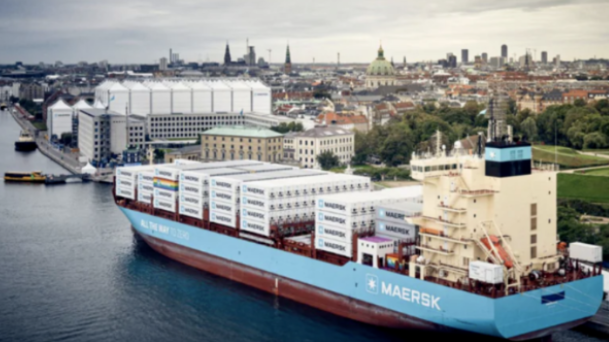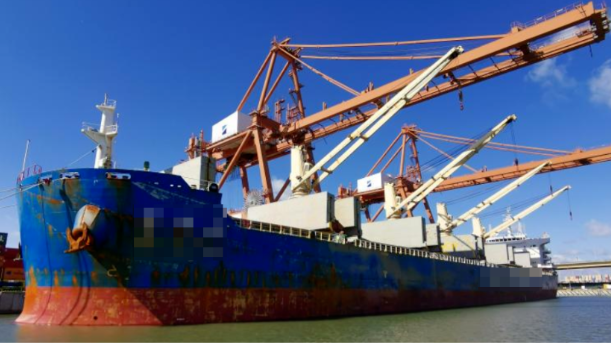The era of paying for customs clearance is over, and enterprise compliance transformation is imperative.
Logistics News
![]() 30-Sep-2025
30-Sep-2025
Starting from October 1, 2025, the Announcement of the Administration of Taxation on Optimizing the Prepayment Declarations for Enterprise Income Tax (Announcement No. 17) was officially implemented.
The grey- operation mode of "buying orders for customs clearance" was completely stopped, and export enterprises entered a critical window period for compliance transformation.
[Policy Nuclear Blast: Howouncement No. 17 Ended Buying Orders for Customs Clearance?]
1. Real-name Declarations: Export Customs Declarations Must "See Real Face"
In short: It is not a complete ban on export agents, but an end to the grey operation of "declaring without a real subject"
7 of Announcement No. 17 clearly stipulates: Enterprises that act as agents, including those that act as agents for the export of goods through market purchase, foreign trade comprehensive services, etc., should simultaneously submit basic information and export amount information of the actual entrusting party for prepayment declaration. If the enterprise does not accurately the basic information and export amount of the actual entrusting party, it should be treated as a self-operated manner, and the enterprise should bear the corresponding enterprise income tax should be declared and paid for the export amount. The actual entrusting party refers to the actual production and sales unit of the exported goods.
2. Penetratingision: Real-time Data Interconnection between Taxation, Customs, and Foreign Exchange Bureau
After the implementation of the new regulations, the tax system has achieved real-time sharing with the customs and foreign exchange management departments. Customs declarations, VAT invoices, and collection records must be completely consistent, and any inconsistency in the information of the will trigger a system risk warning.
3. Historical Case Alert: The Cost of Non-compliance Far Exceeds Imagination
From the relevant cases published by tax authorities, it can be seen that the crackdown on illegal acts is "fast, accurate, and ruthless". Four foreign trade enterprises in Shenzhen defrauded export rebates of 29.6138 million yuan through "buying orders and matching invoices" and were pursued to recover taxes and fines totaling 90 yuan; a certain electronic company in Liaoning falsely declared export business and defrauded tax rebates of 212 million yuan, and was pursued to recover and imposed a penalty of one time, and an additional 687 million yuan was not refunded ["Buying Orders and Matching Invoices"! Defuding 212 Million Yuan! Revealing a Major Case of False Export Declarations to Defraud Export Tax Rebates].
[Buying Orders Customs Clearance: Grey Area Hides Deadly Risks]
1. What is Buying Orders for Customs Clearance?
Buying orders for customs clearance refers the practice where enterprises without export rights purchase the export documents (such as verification and reconciliation forms, customs declarations) of other enterprises for customs clearance, resulting in an inconsistency between actual exporter and the declarer. This model is common in the consolidation of cargo and LCL exports (such as steel, daily necessities), where companies attempt to costs by simplifying procedures. The operation chain is: Principal (without rights) → Order Buying Company (lending the name) → Freight Forwarder (handling customs declaration → Customs Broker (submitting the documents) → Customs.
2. Hazards of Buying Orders for Customs Clearance
In the foreign trade field, buying orders customs clearance was once a "shortcut" for export enterprises of low-value-added products such as small commodities to avoid costs and simplify procedures. Companies purchased customs declaration documents from entities and completed export declaration in the name of others, seemingly saving manpower and material resources, but in fact, it buried great risks.
This behavior not only leads to loss of national tax revenue but also may result in companies facing huge fines or even criminal penalties for tax evasion and defrauding export tax rebates due to forging documents andaling income; more seriously, it disrupts the market price system, destroys the fair competition environment, especially for bulk commodity exports such as steel, which distorts the true trade data affects the national judgment on industry capacity, and exacerbates market supply and demand.
Nowadays, with the enhanced data sharing and penetrating supervision among tax, customs, and foreign exchange departments, the "gray" of buying orders for customs declaration has been thoroughly compressed. If companies continue to harbor lucky thoughts, they will eventually pay a heavy price.
【Industry Compliance: FromBarbaric Growth" to "Precision Farming"】
The policy red line is not to be touched. Under the new regulations, tax audits have shifted frompost-event accountability" to "real-time warnings", and operations such as buying orders for customs declaration and dual customs declarations will trigger the "tax blacklist".
Compliant operations are no longer an option that companies can take or leave, but a vital path that determines their "survival".
Those companies that used rely on buying orders for customs declaration often have tax issues such as concealing income and falsely issuing invoices. Once discovered by the tax authorities, they will not only face huge economic but also leave a bad record in the industry, affecting their long-term development. On the other hand, companies that operate compliantly can enjoy the preferential tax policies provided the state and reduce their operating costs and enhance their market competitiveness with standardized tax management.
Compliant operations require companies to strictly comply with customs laws and regulations, truthfully information such as the name, quantity, and value of goods, and actively cooperate with the customs' inspection and supervision work. This helps companies establish a good customs clearance record, improve clearance efficiency, reduce cargo detention time, and lower logistics costs. At the same time, compliant operations can also avoid penalties such as cargo seizure and fines that companies may suffer due to violations, and ensure the normal production and operation order of the company.
The end of buying orders for customs declaration is a new starting point for companies to operate compliantly In this era full of challenges and opportunities, companies should deeply realize the importance of compliant operations, actively adapt to regulatory requirements, strengthen internal management, improve compliance systems, and integrate the of compliance into every link and every decision of the company.

Last
Maersk exits Brazex/BZX space agreement
Maersk has withdrawn from the space cooperation on the Brazex/BZX service, which connects the Gulf of Mexico with the east of Sout

Next
A Chinese cargo ship caught fire while docking, spreading to multiple cargo holds!
The general cargo ship Qing** reportedly caught fire while at a berth in Southampton, UK. The blaze has reportedly been brought un
